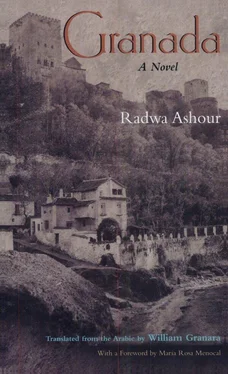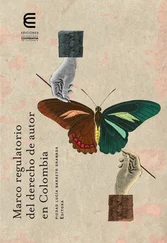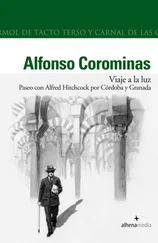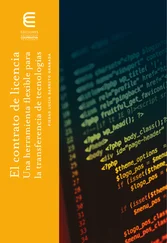Radwa Ashour - Granada
Здесь есть возможность читать онлайн «Radwa Ashour - Granada» весь текст электронной книги совершенно бесплатно (целиком полную версию без сокращений). В некоторых случаях можно слушать аудио, скачать через торрент в формате fb2 и присутствует краткое содержание. Год выпуска: 2003, ISBN: 2003, Издательство: Syracuse University Press, Жанр: Современная проза, Историческая проза, на английском языке. Описание произведения, (предисловие) а так же отзывы посетителей доступны на портале библиотеки ЛибКат.
- Название:Granada
- Автор:
- Издательство:Syracuse University Press
- Жанр:
- Год:2003
- ISBN:9780815607656
- Рейтинг книги:5 / 5. Голосов: 1
-
Избранное:Добавить в избранное
- Отзывы:
-
Ваша оценка:
- 100
- 1
- 2
- 3
- 4
- 5
Granada: краткое содержание, описание и аннотация
Предлагаем к чтению аннотацию, описание, краткое содержание или предисловие (зависит от того, что написал сам автор книги «Granada»). Если вы не нашли необходимую информацию о книге — напишите в комментариях, мы постараемся отыскать её.
Granada — читать онлайн бесплатно полную книгу (весь текст) целиком
Ниже представлен текст книги, разбитый по страницам. Система сохранения места последней прочитанной страницы, позволяет с удобством читать онлайн бесплатно книгу «Granada», без необходимости каждый раз заново искать на чём Вы остановились. Поставьте закладку, и сможете в любой момент перейти на страницу, на которой закончили чтение.
Интервал:
Закладка:
The two grandchildren sustained Abu Jaafar’s dreams by excelling in their studies. Saleema succeeded in memorizing vast amounts of poetry that full-bearded scholars failed to do. Hasan developed an exquisite calligraphy and his letters looked like perfectly carved moldings from a mosque, and the page that came from his hand was a joy to all who laid eyes on it. The children’s teachers regarded their intelligence as a sign of great promise. Abu Jaafar showered them with generous salaries even if it forced him to cut down on other expenses, like a scarf or a pair of shoes he needed to buy to replace a worn-out pair.
5
The man arrived in Granada during the month of July in the year 1499.
War or no war, occupation or joyous occasion, the hills in summertime hold their matrimonial feasts and spread throughout the land their all encompassing greenery, scented with the sweetest aromas, and embroidered with colorful wildflowers, especially the anemones that eclipse them all with their scandalous and teasing red. Summer in Granada brings forth fruit-filled olive trees and the flirtatious apricots appear and disappear behind the lush green leaves. The reticent pomegranates slowly gather their sweetness before being peeled away at the hands of those who will devour them. Arbors and trellises, walnut, almond, and chestnut trees shade the roads as spouting waters merrily cascade from the mountain tops onto the valleys.
That summer, the man came to the city. His head was shaven except for a ring of curly hair that encircled his fleshy, shiny bald crown. His face was stern, bordering on a sickly yellowness. His forehead was wide and his two beady eyes stared out with an inspector’s penetration. He had a hooked nose and two tight, thin lips, the upper of which was slightly fuller than the lower. His torso was excessively lean, and when he spread out his arms from underneath his flowing black robe, he appeared like a frightening giant bat.
The people asked themselves who he was and where he came from. It wasn’t long before they learned to pronounce his name, Francisco Ximenes de Cisneros. He was the archbishop of Toledo who came to them, so they say, from the city of Alcala where he had founded a university. He was a scholar and a faqeeh, a Castilian faqeeh, who came to meet the faqeehs of the Arabs. He reached out to them, treated them with respect, and showered them with gifts.
The town crier announced to the people that Hamid al-Thaghri was going to be released, and that whoever desired to see him in person was free to proceed on the following day to the Church of San Salvador. Abu Mansour was indignant and asked disdainfully, “How can we enter the courtyard of the mosque they turned into a church?”
Saad replied, “The place is ours even though they changed its name. Besides, we’re going not for their sake, but to see a man who is of great concern to all of us. We are his flesh and blood, so is it right that al-Thaghri come out of his long imprisonment only to be alone and deprived of the company of his people? We will carry him on our shoulders from the mosque square, as befitting both him and ourselves.”
Abu Jaafar didn’t utter a word.
On the following day the three of them went to the Albaicin Mosque, which was now called the Church of San Salvador. A great number from the Arab community came out. Some of them were from Malaga, those fortunate enough to have made their way to Granada, men and women alike, who had known al-Thaghri and whose souls had clung to every word he said and every decision he made. The others were citizens of Granada and the surrounding villages who followed the exploits of al-Thaghri, a man who held a warm place in their hearts, that is, next to the place they set aside for Ali, [12] Ali Ibn Abi Talib, cousin and son-in-law of the Prophet Muhammad, is universally revered by Muslims.
the one who won them over with his feats of heroism and acts of justice.
The people assembled in the courtyard of the mosque and sat cross-legged, pressed together, shoulder to shoulder, waiting in breathless anticipation. Then, Cardinal Cisneros appeared in his long black cassock and, with slow deliberate steps, headed toward the east portico where a large, luxurious throne was placed and upon which he sat. He stared out at the people and they at him. He clapped his hands, and four guards came out escorting an extremely emaciated man dressed in tattered clothing. His hands and feet were bound, and he walked with a bowed head and shuffling feet.
The crowds began to whisper. “Is that Hamid al-Thaghri? Is it possible? Could that really be him?”
“It’s him,” shouted a man from Malaga who had fought alongside him. From row to row the people passed the word that Abu Ali the Malagan recognized him. Some asked who had recognized him. They repeated, “Abu Ali the Malagan.”
With his unusually long and pointed fingers, the cardinal motioned to the guards to untie the prisoner. Then the cardinal spoke. “Now, Hamid, tell the people what you saw.”
Hamid stared out at the crowd, lowered his head, then stole another quick, unsettling look. The crowd seemed to be holding its collective breath. Hamid spoke:
“Yesterday…”
One of the guards shouted at him to speak louder. Hamid cleared his throat, straightened himself up, and raised his voice. “Yesterday, while I was in my cell, I fell asleep.” He stuttered, coughed, and then continued. “While I was sleeping yesterday, a voice called out to me and told me that God wants me…”
He stopped. Several silent moments passed in which it appeared that the man had nothing further to say. He closed his eyes and said: “He wants you to become a Christian. This is His will.”
A dead silence fell over the crowd as though the square, teeming with hundreds of people, was totally deserted. The guards took al-Thaghri away, and the masses of Arabs were jolted by the sudden piping of the organ and the hymns that echoed loudly throughout the courtyard of the mosque. Saad spoke up: “Let’s go, Abu Jaafar. Come, Abu Mansour, let’s go home.” He turned toward Abu Jaafar and was shaken by the tears gushing out of his eyes as though he were a little boy. He put his arm around him and repeated, “Let’s go, Grandfather.” Abu Jaafar shook his head and beckoned with his fingers to Saad who understood immediately that he wanted to stay.
The guards returned with al-Thaghri whose hands and feet were now free of the chains. They had washed his face, combed his hair, and dressed him in a silk robe. Al-Thaghri walked toward the cardinal with slow, heavy steps as though his feet were still in chains. He knelt at the feet of Cisneros who took the small decanter of baptismal water from one of the deacons. He dipped his fingers into the water and sprinkled the drops over al-Thaghri’s forehead as he recited a prayer. Hamid al-Thaghri had chosen for his Christian name Gonzales Fernandez Zegri.
The people had not yet recovered from what had happened, nor had anyone dared to even recall the details or dwell on the painful events when the news traveled in whispers that the Castilians were breaking into all the mosques and schools, and that they were collecting all the books and bringing them to an unknown destination.
For a week, the Paper Makers’ Quarter witnessed unusual activity. The shops closed during the daytime and were kept open all night as a cover-up. Two or three hours after evening prayers the quarter came alive and went to work. Abu Mansour and three of his young employees stood guard over the quarter from a position behind the bathhouse, while Naeem and two others kept watch from the other side.
Behind the doors that were kept slightly opened was the soft glow of candlelight. In every shop you could see the shadows moving back and forth in the flickering light. Cupboards full of books were opened on both sides as the hands moved in and out of them with great care and caution. Large sacks were stuffed, and straw baskets and cartons were filled to the brim. There was the shadow of someone filling a sack and carrying it off, or of someone stuffing a basket, or perhaps two men hoisting together a heavy crate over their shoulders and vanishing into the night. The dark, gloomy street came to life with voiceless phantoms, some sinuous and hunchbacked, others straight as reeds, looking as though they were capped with a strange and mysterious crown on the top of their heads. Some took bizarre shapes like elevated thrones with walking legs. The whole quarter was animated with these silent phantoms whose torsos conjoined with the loads they were carrying, as they communicated with their arms and legs, appearing like eerie phantasmic creatures that come to life only in the black of night and fade away at the crack of dawn.
Читать дальшеИнтервал:
Закладка:
Похожие книги на «Granada»
Представляем Вашему вниманию похожие книги на «Granada» списком для выбора. Мы отобрали схожую по названию и смыслу литературу в надежде предоставить читателям больше вариантов отыскать новые, интересные, ещё непрочитанные произведения.
Обсуждение, отзывы о книге «Granada» и просто собственные мнения читателей. Оставьте ваши комментарии, напишите, что Вы думаете о произведении, его смысле или главных героях. Укажите что конкретно понравилось, а что нет, и почему Вы так считаете.












